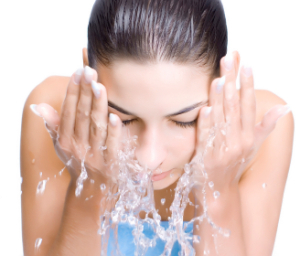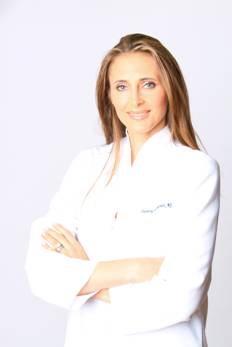By now, you’ve probably seen buzzwords like “all natural,” “hypoallergenic” and “patented” hundreds of times. But have you ever
stopped to ask what they mean?
Beauty companies love terms like these because they suggest concrete benefits that don’t have to be backed up by science. In fact, as long as they don’t claim to change the body’s structure or function, companies don’t need FDA approval to market new products to the public and are not required to provide any research to prove their claims. These days, one would almost need a degree in chemistry to understand some of the catch phrases on skin care products. Dr. Channing Barnett is a board certified Manhattan dermatologists who wants to help consumers understand what this frequently used language means.
Gone are the days when simple statements such as “oil free” would suffice. Perhaps the most common phrase is clinical formula. As Dr. Barnett explains, “this has no real meaning. It does not necessarily indicate that the formula was produced in a medical clinic as the manufacturers would have people believe. Clinically tested could very well indicate that the product was tested, but what was it tested for? What were the results? Essentially, this marketing claim is meaningless.”
Here are six more commonly misunderstood terms to watch for:
1. “Patented” or “pantent pending”
Patents can be granted to companies that manufacture or combine materials in new ways. But just because something is patented doesn’t mean it works.
2. “All natural”
This one really bugs me! It doesn’t mean the product is organic or chemical-free. After all, chemicals are “natural,” too.
3. “Organic”
The US Department of Agriculture certifies organic food ingredients found in cosmetics, but not essential oils or plants used for cosmetic purposes. To carry the USDA Organic seal, a product must contain at least 95% organic food ingredients (read What Does Organic Really Mean in Skin Products?). Other countries have their own organic certification labels, such as COSMOS and NaTrue in the European Union and NASAA in Australia. Read COSMOS Standardizes Organic Product Labels to learn more.
4. “Hypoallergenic”
Think this guarantees you won’t have a reaction? Think again. These products can still contain ingredients some people are allergic to, including preservatives and fragrance.
5. “Fragrance-free”
These products may not have a noticeable smell, but can still contain “masking” scents to cover up ingredients with unpleasant odors. Look for the words “no fragrance added” instead.
6. “Non-comedogenic”
While non-comedogenic products are usually oil-free and therefore less likely to cause breakouts, there’s no guarantee they won’t. In fact, many contain dimethicone, a known acne aggravator.
7. Helps pre-mature aging.”
Perhaps the most appealing of all claims from a consumer standpoint is this statement. If a product truly prevented premature aging by affecting the structure of the skin, it would be classified as a drug and therefore would require FDA approval. Manufactures circumvent this by utilizing the fact that sunscreens prevent premature aging by decreasing the damaging effects of ultraviolet light on the skin. Therefore, if a product contains sunscreen, it may state “prevents premature aging’ on the label.”
About Dr. Barnett: Dr. Channing Barnett is a board certified dermatologist, with particular expertise in dermatologic and cosmetic
surgery. A co-founder of Barnett Dermatology, Dr. Barnett is committed to helping her patients reveal and maintain the healthiest skin
possible. She is nationally and internationally recognized as a leader in the use of liquid injectable silicone as a filler, as well as for her
pioneering work in dermatology and dermatologic and cosmetic surgery. The cornerstone of Dr. Barnett’s successful Manhattan practice is her philosophy of using minimally invasive procedures for maximum skin care results and long-term benefits. Dr. Barnett’s commitment to patient care and continued involvement in the research and development of new dermatological procedures ensures that her patients receive the most effective and sophisticated treatments available.
A graduate of Princeton University where she played on the women’s varsity basketball team and won a league championship, Dr. Barnett received her medical degree from Albert Einstein College of Medicine. She then completed a surgical internship at Lenox Hill Hospital, followed by a dermatology fellowship at Columbia Presbyterian Medical Center. During the fellowship she worked on clinical trials investigating hair loss, skin cancer, nail disease and psoriasis. Dr. Barnett went on to complete a three-year residency in Dermatology at Columbia Presbyterian Medical Center.
You may learn more about Dr. Barnett by visiting www.barnettdermatology.com
Office Location
Channing R. Barnett, M.D.
Barnett Dermatology
163A East 70th Street
New York, NY 10021
212-734-2800

